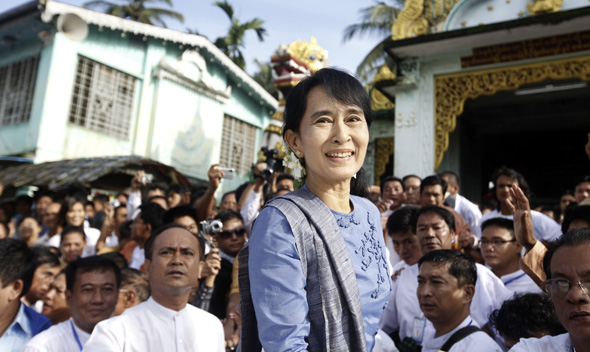Signs of Change in Burma?
More on:

Since the highly suspect national “elections” held in Burma last November, Burmese activists and average Burmese citizens have been looking for any signs that the new, civilian government, would be any different from decades of venal and ruthless military regimes that have ruled the country. For months, there were very few signs. Though the new president, Thein Sein, has reputedly reformist tendencies, many Burma watchers have reported that he has had to fight with a group of reactionary hard-liners who have been put in power essentially to check him. Most notably, Asia Times has reported that Vice President Thin Aung Myint Oo, a hard-liner, has effectively stood in the way of any real change that Thein Sein has promoted. Following any cabinet meetings, Thin Aung Myint Oo reportedly summons cabinet members and warns them not to proceed with any reform.
This set-up may well have been by design. As Asia Times reported:
As former junta leader Than Shwe has withdrawn from the scene, some believe he deliberately left a power vacuum in his wake which Thein Sein and Thin Aung Myint Oo are competing to fill. If the competition escalates into open rifts, some fear the military could step in to suspend the country’s nascent democracy.
Largely because of these signs of blocked reform, the US Congress has extended comprehensive sanctions on Burma. In an age of partisan tension, these sanctions enjoy widespread bipartisan support.
But in recent weeks, other, more optimistic signals have emerged. As I have written before, any such signals must certainly be taken with a grain of salt. The Burmese government has on many previous occasions dangled promises of reform when it wants to get something from the international community; this time, that wish list includes hosting the 2014 ASEAN Summit, as well as better relations with the United States, other Western nations, and some of its more skeptical Southeast Asian peers. Still, the fact that Aung San Suu Kyi has been able to travel the country, and now may be using those travels to rebuild the National League for Democracy into a party capable of contesting the next elections, should not be wholly discounted. In addition, the stated desires by the government to have Burmese exiles return to the country –- many of whom fled to avoid political persecution, also suggests that real reform may be brewing. If Suu Kyi is allowed to continue traveling and speaking for an extended period and the NLD is able to re-emerge, that would be the clearest sign of real change.
More on:
 Online Store
Online Store